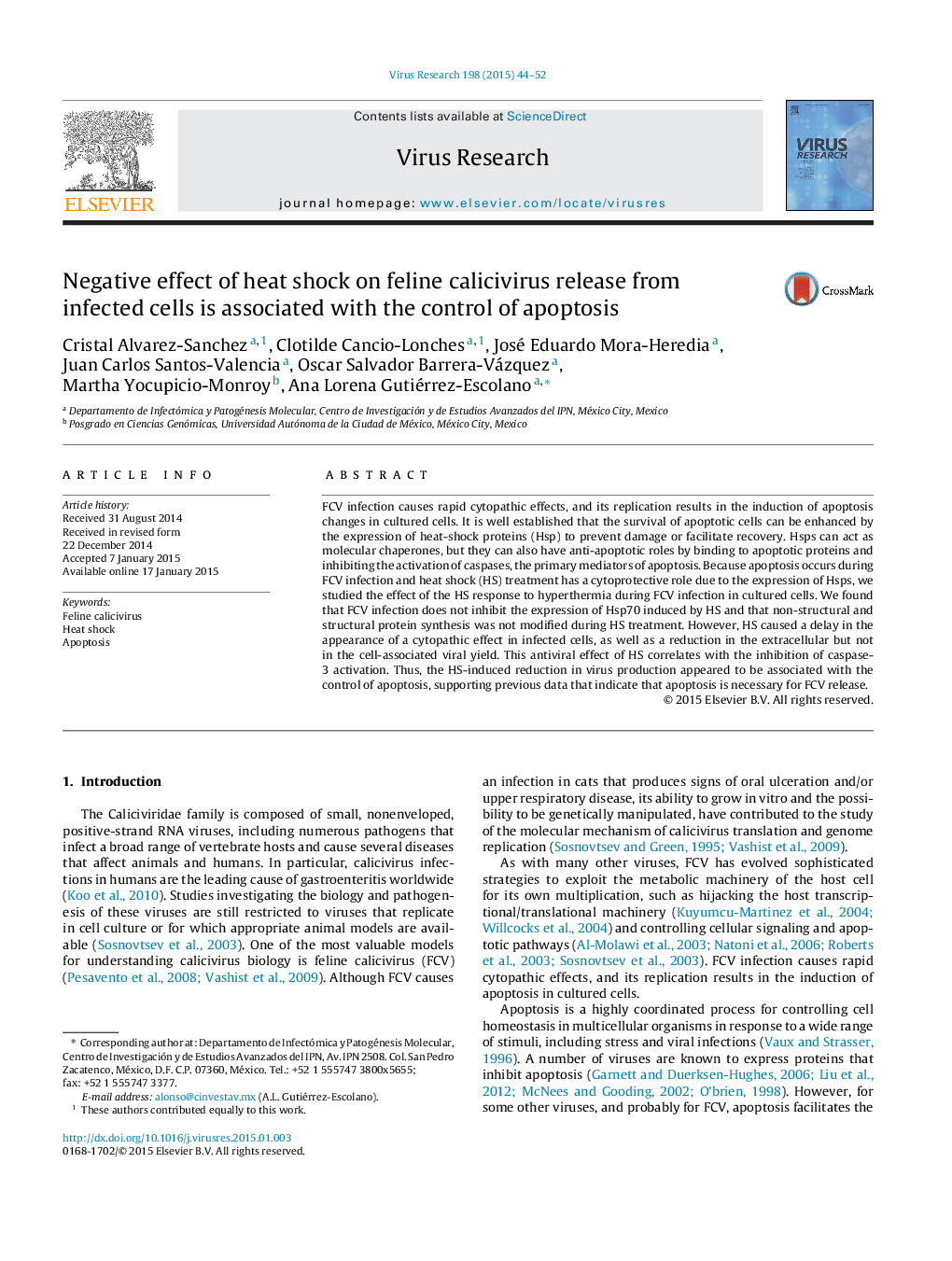| Article ID | Journal | Published Year | Pages | File Type |
|---|---|---|---|---|
| 3428326 | Virus Research | 2015 | 9 Pages |
•FCV replication results in the induction of apoptosis in cultured cells.•Survival of apoptotic cells can be enhanced by the expression of Hsp.•HS does not affect FCV NS and structural protein synthesis but reduces cytopathic effect and virus release.•Heat shock treatment delays the activation of pro-caspase 3 in FCV-infected cells.•HS causes a reduction in FCV release associated with the control of apoptosis.
FCV infection causes rapid cytopathic effects, and its replication results in the induction of apoptosis changes in cultured cells. It is well established that the survival of apoptotic cells can be enhanced by the expression of heat-shock proteins (Hsp) to prevent damage or facilitate recovery. Hsps can act as molecular chaperones, but they can also have anti-apoptotic roles by binding to apoptotic proteins and inhibiting the activation of caspases, the primary mediators of apoptosis. Because apoptosis occurs during FCV infection and heat shock (HS) treatment has a cytoprotective role due to the expression of Hsps, we studied the effect of the HS response to hyperthermia during FCV infection in cultured cells. We found that FCV infection does not inhibit the expression of Hsp70 induced by HS and that non-structural and structural protein synthesis was not modified during HS treatment. However, HS caused a delay in the appearance of a cytopathic effect in infected cells, as well as a reduction in the extracellular but not in the cell-associated viral yield. This antiviral effect of HS correlates with the inhibition of caspase-3 activation. Thus, the HS-induced reduction in virus production appeared to be associated with the control of apoptosis, supporting previous data that indicate that apoptosis is necessary for FCV release.
